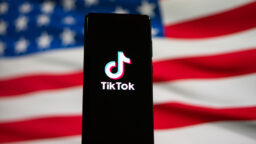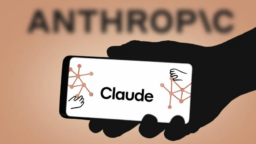Pandora‘s mission to drive down the royalties it pays artists/labels and songwriters/publishers just got some heavy back-up – in the shape of Google and Amazon.
The duo have joined the likes of Pandora, IHeartMedia, NPR, and the National Restaurant Association as members of new lobbying group ‘The MIC (Music, Innovators, Consumers) Coalition’.
- The Department of Justice is currently reviewing the statutory rates that publishers can charge for digital performance royalties. The publishers are lobbying for the ability to pull their digital negotiation rights out of ASCAP and BMI – which would mean a change in the country’s Consent Decrees. This would allow them to put direct commercial pressure on the likes of Pandora for higher rates;
- Meanwhile, the Copyright Review Board is mulling revisions to the statutory royalty rate paid to labels and artists through SoundExchange. Pandora wants to push its per-stream payout down, while SoundExchange is lobbying to double it to around $0.0025 per play;
- Finally, recent recommendations from the US Copyright Office, now being considered by Congress, included a call for artists to receive a performance payment from US terrestrial radio for the first time. Currently, only songwriters/publishers are paid when a song is played on US radio; a situation challenged by the Fair Play, Fair Pay act.
The MIC Coalition, though, is fighting back on all three counts.
“The current consent decrees protect music users from the anticompetitive behavior inherent to [BMI and ASCAP].”
The MIC Coalition
Its mission statement says that it is concerned over “a risk [Congress] will craft a law that stifles innovation to the detriment of consumers and artists”.
As for the publishers’ attempts to change the Consent Decrees to allow for higher royalty rates and direct negotiation, MIC says: “These [current] Consent Decrees promote fair music licensing while protecting music users, venues where music is played and music distributors from the anticompetitive behavior inherent to the PROs.”
And then there is the labels’ hope to push up SoundExchange payouts.
“The Copyright Royalty Board’s verdict is expected at the end of 2015,” says MIC.
“If those rates are too high, Internet radio streaming could become unsustainable and those services could be driven out of business. As a result consumers and businesses that play music would have fewer choices in the marketplace.”
It’s also interesting to note who’s not on MIC’s membership group: no Spotify, no Apple and no Sirius XM.
MusicFirst, which is fighting for Fair Play, Fair Pay, has responded angrily to MIC’s formation.
MusicFirst Executive Director Ted Kalo said: “The supposedly new MIC coalition looks like little more than some of the world’s biggest and wealthiest corporations — and the trade associations they fund — hiding behind a new website and a gauzy mission statement as they continue their campaign to deny fair pay to working musicians, to stiff artists on AM/FM radio, and to ignore the pleas of elderly performers seeking their due.
“The MIC group claims to support balanced solutions so that ‘artists can be compensated’ for music. But you cannot pretend to support that while opposing an AM/FM performance right as mic member the NAB most surely does.”
He added: “They say they want the music ecosystem to grow — should it grow enough to include artists like Percy Sledge, who we lost this month just days after artists like Rosanne Cash, Elvis Costello, and Duke Fakir called out MIC members like Pandora for refusing to pay him for his work?
“They can’t hide their true agenda behind lofty statements of principle when their actions speak so loud and clear. And they can’t beat the people who create music and those who love it in the drive for Fair Play, Fair Pay.”
“Sadly, it’s no surprise that Pandora is joining other tech giants to fight the songwriters and artists who made them.”
David Isrealite, NMPA
David Israelite, president of the National Music Publishers Association had similarly strong words: “Streaming giants like Pandora have long exploited these archaic regulations to use songwriters’ work while paying them almost nothing.
“Sadly, it’s no surprise that they are joining other tech and streaming giants to fight the songwriters and artists who made them.”
Pandora paid out $126m in ‘content acquisition costs’ in Q1 2015 – essentially royalties to licensing bodies such as SoundExchange, BMI and ASCAP.
That amounted to more than half of its total revenue, and a key reason why it recorded a $48m net loss.
BMI currently receives 1.75% of Pandora’s revenue – which would have amounted to around $4m in Q1 2015.
But the digital company wants to reduce the figure to 1.7% to match the rate paid by most radio stations.
The ASCAP rate court ruled last year that Pandora must give 1.85% of its annual revenue to the BMI rival.
Despite the increase, Sony/ATV’s CEO & Chairman Martin Bandier slammed the decision, calling it “woefully inadequate” and a “clear defeat for songwriters”.Music Business Worldwide




